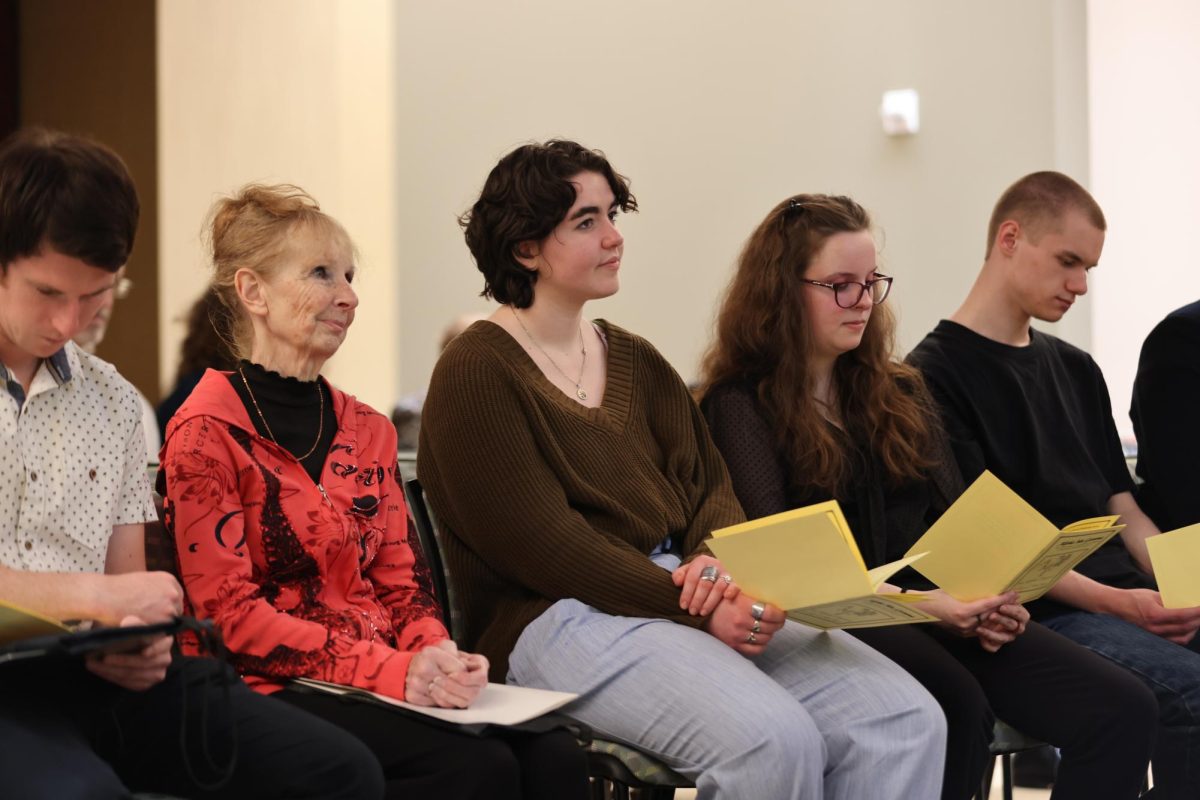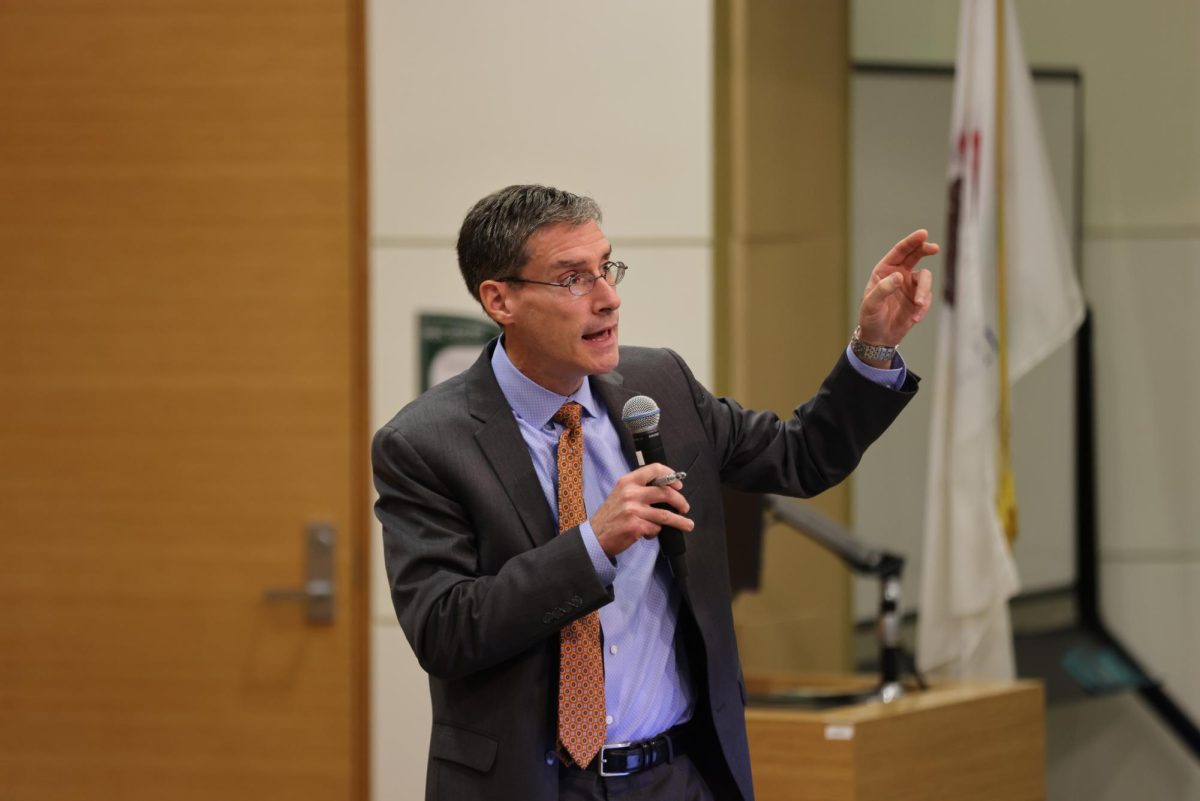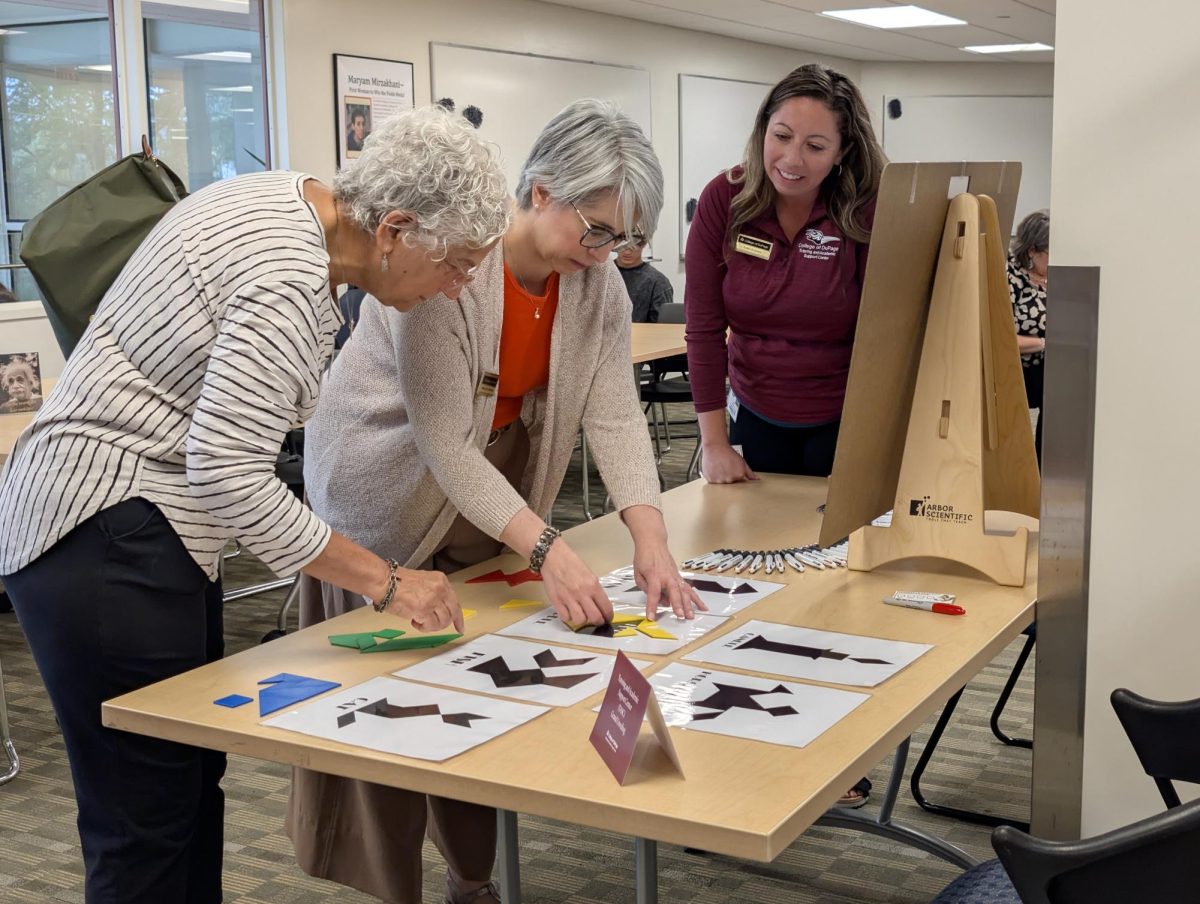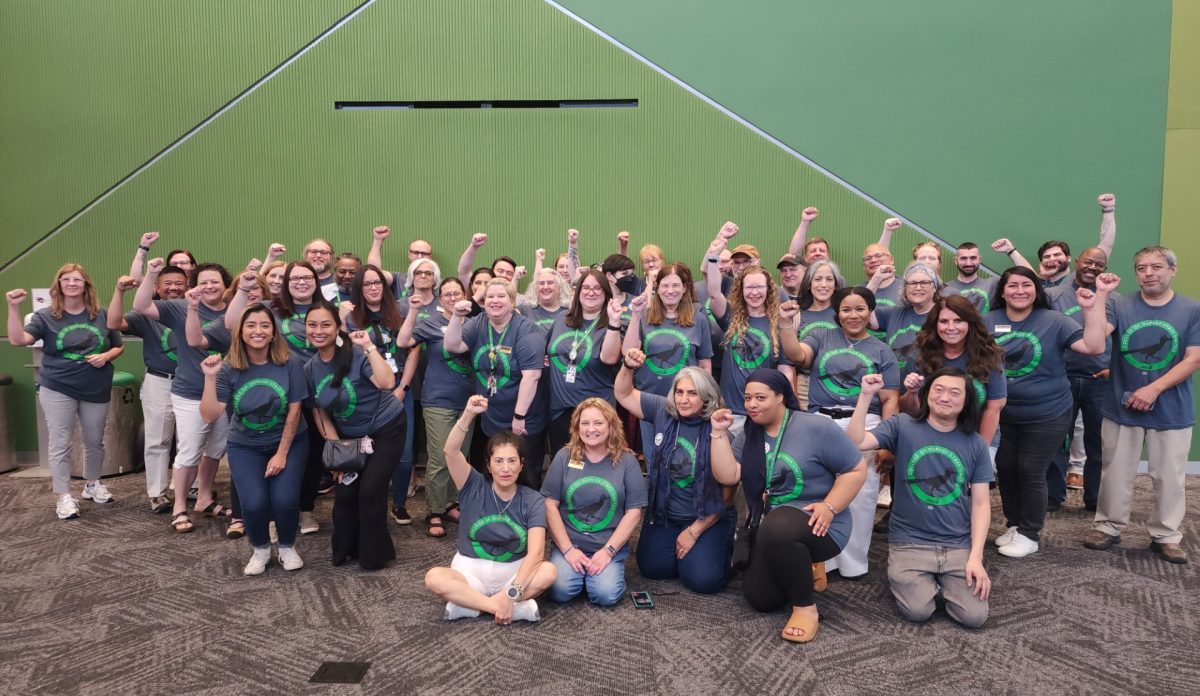For Jess McDowell, learning new languages isn’t just about grammar and vocabulary. McDowell, the president of the College of DuPage’s Alpha Mu Gamma honor society, seeks connections, culture and community.
“You don’t need to be fluent in every language. Even just learning the basics, it opens up doors,” she said. “You make friends. You connect with different communities, and you gain skills that help you in the real world. Even knowing a little bit of someone’s language, it changes everything.”
College of DuPage (COD) hosted its 24th annual Alpha Mu Gamma honor society induction ceremony on May 2 in the Student Resource Center (SRC) room 2131. This year marked a new addition to the tradition with the first COD Language Showcase, featuring student dance performances, poetry, storytelling, presentations and visual displays in a variety of languages.
“That was the fun part this year,” McDowell said. “Students from different language courses showed their final projects and shared meaningful or entertaining aspects of the languages they’re studying. It was incredibly rewarding to see them perform and take pride in their work.”
McDowell said that in the coming years she hopes to expand the language showcase by highlighting more underrepresented languages.
Alpha Mu Gamma established its chapter at COD in 2001 to recognize outstanding student achievement across all language studies. The community has grown into the first and largest national collegiate foreign language honor society in the United States, with over 300 chapters across the country. To be eligible for membership, students must receive two A’s in a language course of the same language, and maintain a 3.0 GPA or higher. Membership is for life and allows access to different scholarships.
“We’re all about building bridges between cultures,” Spanish faculty and co-adviser Sandra Anderson said. “We always try to work with other student organizations to bring people together to share our love of languages and culture.”
COD also offers a club version for students to attend, regardless of language study experience. Meeting dates for the 2025-2026 school year are currently being discussed.
“Human language is one of the most individual, unique and simultaneously universal things we experience,” she said. “The way one person engages in a language class is so broadly different from another. That’s what makes it so fun. Seeing the ever-evolving, non-static nature of humans and language.”
However, the value of language learning extends far beyond the classroom or extracurriculars, co-adviser Brian Kapustka said. At its core, it’s about fostering greater understanding between people.
“I think now more than ever, it’s important for students to connect with others and recognize the value of multilingualism and multiculturalism,” Kapustka said. “It’s about building bridges and making meaningful connections. That’s critical for so many reasons, personal, social, cognitive and professional. The possibilities and benefits of language learning are essentially endless.”
The challenges students face when stepping outside their linguistic comfort zones can be intimidating at first, Anderson said.
“We’re asking people to set aside their hard-wired language and tolerate the ambiguity that comes with learning something new,” Anderson said. “But we’re aware of that, and we do our best to help students feel comfortable. We want them to be immersed, not submerged. Finding communities like these can help with that.”
Despite the initial discomfort, the process of learning a new language in school offers lasting cognitive and personal benefits that extend far beyond the classroom.
“Learning languages rewires your brain,” she said. “It literally gives you more neurons, more possibilities with which to think. The more languages we have, the better. It’s always a good thing to open up your world.”
To learn more about Alpha Mu Gamma or the Language Studies program, visit https://www.cod.edu/academics/programs/languages/ or contact Brian Kapustka at [email protected].









